Opinion
Professor Lakshman Marasinghe
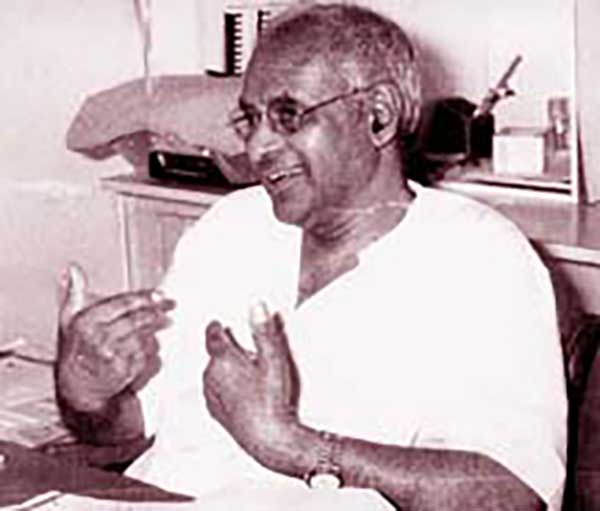
(10 March 1934 -1 January 2023)
Professor Lakshman Marasinghe a world recognized authority on Private International Law, and a scholar of international repute, passed away on January 1, 2023. His loss is a blow to the scholarly pursuit of law both in Sri Lanka and around the world. Professor Marasinghe had a long and distinguished teaching career holding appointments as Visiting Professor of Law in many universities around the world.
He held an LLB degree with first class honours from University College, London followed by an LLM with distinction and a Ph D. He was an Emeritus Professor of Law at the University of Windsor, Canada, and Visiting Professor of Law to many universities around the world including University of New South Wales, and University of Western Australia, Hong Kong,and Singapore. He was recently appointed to the Editorial Board of the Journal of Commonwealth Law and Education by the Commonwealth Secretariat.
Born in Walahapitiya, a town near Chilaw where his father was a leading Proctor and later to be Crown Proctor, Prof Marasinghe had his secondary education at Royal College in Colombo. In school he showed no signs of the outstanding career that lay ahead, when he had to repeat his first year at Royal. Having enrolled in the last year of the Principalship of EL Bradby, Mara as he was fondly called by his classmates, found that at the end of the first year he was called upon to repeat. As a result he was compelled to join the students who enrolled in the school in 1946 of which batch I was one.
That was where our friendship began – 77 years ago. His inability to keep pace in school during the early years may be attributed to a pronounced stutter in his speech which may have not only affected his studies and progress in school, but also his self confidence. His progress in school was ordinary, and like most of us, he opted to choose science as his area of specialization with a view to a career in medicine. Having unsuccessfully made two attempts at gaining entry to the University of Ceylon, he set sail to the UK in 1955 with the aim of making another go at the elusive medical career which did not seem to beckon.
He then decided to do law and enrolled at the University of London. This was the turning point in his career and indeed his life. He finally turned to the career which not only beckoned him, but also embraced him, and was indeed the chosen one for him, if one were to believe in anything called ‘pre ordained”! A truly illustrious career in law followed. His valiant attempts at getting a foothold in a medical career disappeared as did indeed his stutter. Miracles do happen!
We lost contact with each other for many years when one evening in 1999 my phone in Sydney rang and when I answered the caller exclaimed in Sinhalese “Oya Karu da”? I had not spoken in Sinhalese for many years and I was quite surprised but managed to say “Ow mey Karu thamai” to which the caller replied ” Mey Mara katha karanne”. I only knew one Mara and the voice still sounded like him, and that was the beginning of a renewed friendship.
Mara and his then wife Farida were living in an apartment within the Campus of University of New South Wales where he was on a three month assignment as Visiting Professor. There was much catching up to do, and his many assignments with the University of New South Wales, and many shared meals between our families helped us immensely towards that end. I recall the many occasions on which during visits to Sri Lanka my wife and I enjoyed his hospitality in his home in Davidson Road, Bambalapitiya, the rooftop of which was a splendid setting for hosting a meal. He had a well stocked bar, but was not partial to alcohol, only occasionally taking a glass of wine, but that did not deter him from playing the role of a gracious host.
Sometime in I 1998, I together with some friends had launched the Ceylon Society of Australia of which Mara became a member within a year of its establishment. He was also a speaker at one of our meetings where he spoke on pending constitutional reforms in Sri Lanka. About this time he was appointed Chairman of the Law Commission of Sri Lanka and was the legal Director of SCOPP – the Secretariat for Coordinating the Peace Process during the days of the Civil War. He was also a member of the Panel of Experts overseeing the transfer of power from the existing South African Govt to its post apartheid successor and was an integral part in the formation of the constitution of the latter.
The variety of his involvements in his professional life seemed to keep his restless spirit in control. He was always a rationalist, but practical in his views. He was active professionally till his last days when he was stricken with an illness which confined him to bed until his sad passing on New Years Day in 2023. His wife Rohini a lawyer and former judge of the Supreme Court has been a tower of strength to him, and is now destined to walk alone. Rohini currently serves as the Chairperson of the Human Rights Commission of Sri Lanka.
Lakshman Marasinghe leaves a legacy of acclaimed interventions on behalf of aggrieved persons and institutions in pursuit of justice. He is survived by his wife Rohini, former wife Farida, and Leelan, a son by the latter, with all of whom we condole on their sad loss. I grieve the loss of a dear friend from childhood days.May Lakshman Marasinghe attain the Supreme bliss of Nirvana
Hugh Karunanayake
Opinion
Labour exploitation at Sri Lankan audit firms: A regulatory blind spot
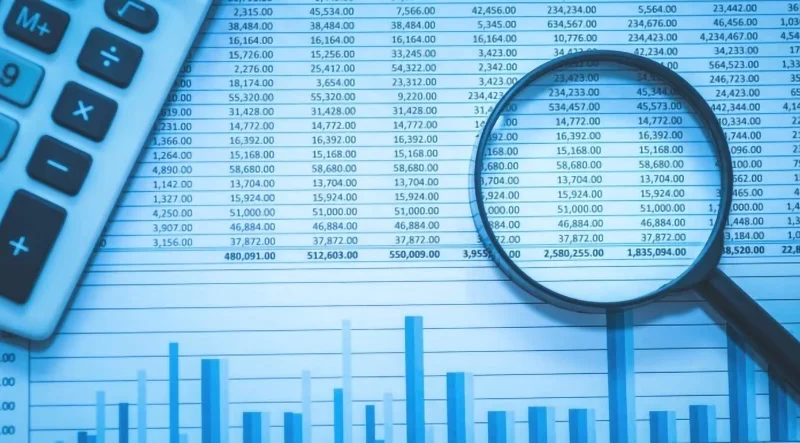
A recent tragedy of a young audit professional has prompted a nationwide conversation on Sri Lanka’s audit work culture. What was initially described as an untimely passing has since raised serious concerns about excessive workloads, workplace responsibility, and the well-being implications of the professional pressure. Accordingly, this article seeks to explore prevailing audit culture and professional practices in Sri Lanka, and highlights areas where thoughtful reform may be considered
The Evolution of Accounting and Finance Education in Sri Lanka
Over the past several decades, accounting and finance education in Sri Lanka has evolved from a narrowly technical field into a recognised professional discipline. Universities and professional institutions now offer specialised programmes aligned with international standards, covering accounting, finance, auditing, taxation, and corporate governance.
Professional bodies have modernised curricula by incorporating international accounting and auditing standards, ethics, and governance related content. As a result, Sri Lankan accounting graduates develop both technical competence and professional judgment, enabling them to compete successfully in multinational corporations, international audit networks, and global financial institutions, both locally and overseas.
This progress reflects a broader national commitment to professional excellence. Accounting and finance are now recognised as disciplines central to economic governance, market transparency, investor confidence, and public trust.
Why Professional Qualifications Matter
Professional qualifications often act as gateways to the corporate world. Professional pathways in Sri Lanka include qualifications offered by the Institute of Chartered Accountants of Sri Lanka (ICASL), the Association of Chartered Certified Accountants (ACCA), the Chartered Institute of Management Accountants (CIMA), the Institute of Chartered Professional Managers (ICPM), and the Association of Accounting Technicians (AAT).
For employers, these qualifications signal technical competence, ethical compliance, and completion of structured practical training. For students, they represent professional legitimacy, career security, and upward mobility.
Therefore, families and students invest significant time and resources in this pathway, reflecting its importance, often exceeding the practical value of a degree alone. Qualified professionals trained through this system contribute to both Sri Lanka’s domestic financial sector and overseas markets.
The Growth and Public Role of the Audit Sector
Alongside educational development, Sri Lanka’s audit sector has expanded in scale and influence as businesses have become more complex and globally connected. Audit firms now operate across the listed companies.
Audit firms perform an important public interest function by assuring the credibility of financial information, supporting investor confidence, and underpinning regulatory compliance and corporate governance. Beyond service delivery, they also act as professional institutions that determine norms and train future leaders in accounting and finance.
As a result, internal practices within audit firms, including organisational culture, workload expectations, remuneration, and supervision, have implications that extend beyond individual workplaces, influencing professional judgment, audit quality, and long-term public trust.
The Dream of Becoming a Chartered Accountant
For thousands of young Sri Lankans, becoming a Chartered Accountant represents one of the most respected professional ambitions. It is widely viewed as a symbol of discipline, resilience, and upward mobility. Students enter the pathway with the expectation that years of study, sacrifice, and perseverance will ultimately lead to professional recognition and stability.
A defining feature of this pathway is mandatory practical training. To qualify, students must complete a prescribed period of supervised training, most commonly within audit firms. This requirement is designed to bridge theory and practice, ensuring that academic knowledge is reinforced through real world exposure, professional supervision, and ethical decision making.
In practice, securing a training position is often the most decisive and competitive stage of the journey. Without completing this training, the qualification remains unattainable regardless of examination success. Therefore, audit firms are not only employers but also essential gatekeepers to professional advancement, controlling access to qualifications, experience, and future career opportunities.
Where the System Begins to Strain
This structure, while well intentioned, creates a significant imbalance of power. Trainees depend on audit firms not only for income, but also for the completion of their professional qualification. In such circumstances, questioning workloads, working hours, or basic welfare provisions can feel risky. Many trainees remain silent, fearing that concerns could delay qualification or affect future career prospects.
Audit work is demanding worldwide, particularly during peak reporting periods. Long hours, tight deadlines, and intense fieldwork are widely recognised features of the profession. However, the concern arises when these pressures become normalised without sufficient regard for rest, safety, remuneration, or minimum working conditions.
Training allowances and entry-level remuneration in audit firms are often modest relative to workloads and expectations, with trainee allowances typically ranging from LKR 10,000 to 20,000 per month, despite daily working hours that frequently extend 8 to 12 hours. Many trainees accept low pay and long hours as temporary sacrifices in pursuit of long-term professional goals. Over time, when such conditions are justified as “part of training,” unhealthy practices risk becoming normalised and embedded within professional culture.
Such environments may still produce technically competent professionals, but at the cost of burnout, ethical fatigue, and reduced long term engagement with the profession.
A Regulatory Blind Spot
In Sri Lanka, audit firms are regulated by CA Sri Lanka with respect to professional standards, ethical conduct, examinations, and prescribed training requirements, thereby playing an important role in maintaining the profession’s credibility and international standing. This is a professional regulation.
However, professional regulation serves a different purpose from organisational or workplace oversight. While audit firms are subject to general labour laws, there is no audit specific public oversight mechanism that systematically reviews audit firms’ internal governance, remuneration structures, or training environments.
This creates a regulatory asymmetry. Audit firms scrutinise others under detailed regulatory frameworks, yet their own internal systems are not subject to equivalent public review. Given the large population of trainees with limited bargaining power, this gap may affect professional sustainability, audit quality, and public trust.
Following a recent tragedy involving a trainee, CA Sri Lanka issued a public condolence statement acknowledging stakeholder concerns and confirming that the circumstances are under review.
Looking Ahead
To strengthen the long-term sustainability of the audit profession, Sri Lanka may consider the following measures:
* Establish a dedicated public oversight body for audit firms, with responsibility for monitoring firm level governance, training environments, and organisational practices, complementing existing professional regulation.
* Introduce transparency reports for audit firms, requiring disclosure of governance structures, quality control systems, training arrangements, and continuing professional education practices.
* Apply modern labour governance principles, drawing on modern slavery frameworks used internationally that emphasise prevention, transparency, and early identification of labour related risks.
* Improve visibility of trainee remuneration and workload practices, particularly where mandatory training creates structural dependency.
* Strengthen coordination between professional self-regulation and public oversight, ensuring that professional excellence is supported by sustainable and accountable organisational environments.
These measures do not imply illegality or misconduct. Rather, they reflect an opportunity to align Sri Lanka’s audit profession with evolving global norms that prioritise transparency, dignity, and long-term public confidence. If audit firms are entrusted with holding others accountable, the systems governing them must also reflect responsibility toward the people who sustain the profession.
by Sulochana Dissanayake
Senior Lecturer at Rajarata University of Sri Lanka | Sessional Academic & PhD Candidate at Queensland University of Technology (QUT)
and
by Prof. Manoj Samarathunga
Faculty of Management Studies
Rajarata University of
Sri Lanka Mihintale
Opinion
Buddhist insights into the extended mind thesis – Some observations
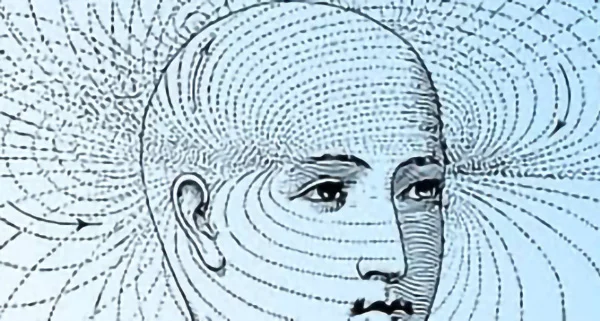
It is both an honour and a pleasure to address you on this occasion as we gather to celebrate International Philosophy Day. Established by UNESCO and supported by the United Nations, this day serves as a global reminder that philosophy is not merely an academic discipline confined to universities or scholarly journals. It is, rather, a critical human practice—one that enables societies to reflect upon themselves, to question inherited assumptions, and to navigate periods of intellectual, technological, and moral transformation.
In moments of rapid change, philosophy performs a particularly vital role. It slows us down. It invites us to ask not only how things work, but what they mean, why they matter, and how we ought to live. I therefore wish to begin by expressing my appreciation to UNESCO, the United Nations, and the organisers of this year’s programme for sustaining this tradition and for selecting a theme that invites sustained reflection on mind, consciousness, and human agency.
We inhabit a world increasingly shaped by artificial intelligence, neuroscience, cognitive science, and digital technologies. These developments are not neutral. They reshape how we think, how we communicate, how we remember, and even how we imagine ourselves. As machines simulate cognitive functions once thought uniquely human, we are compelled to ask foundational philosophical questions anew:
What is the mind? Where does thinking occur? Is cognition something enclosed within the brain, or does it arise through our bodily engagement with the world? And what does it mean to be an ethical and responsible agent in a technologically extended environment?
Sri Lanka’s Philosophical Inheritance
On a day such as this, it is especially appropriate to recall that Sri Lanka possesses a long and distinguished tradition of philosophical reflection. From early Buddhist scholasticism to modern comparative philosophy, Sri Lankan thinkers have consistently engaged questions concerning knowledge, consciousness, suffering, agency, and liberation.
Within this modern intellectual history, the University of Peradeniya occupies a unique place. It has served as a centre where Buddhist philosophy, Western thought, psychology, and logic have met in creative dialogue. Scholars such as T. R. V. Murti, K. N. Jayatilleke, Padmasiri de Silva, R. D. Gunaratne, and Sarathchandra did not merely interpret Buddhist texts; they brought them into conversation with global philosophy, thereby enriching both traditions.
It is within this intellectual lineage—and with deep respect for it—that I offer the reflections that follow.
Setting the Philosophical Problem
My topic today is “Embodied Cognition and Viññāṇasota: Buddhist Insights on the Extended Mind Thesis – Some Observations.” This is not a purely historical inquiry. It is an attempt to bring Buddhist philosophy into dialogue with some of the most pressing debates in contemporary philosophy of mind and cognitive science.
At the centre of these debates lies a deceptively simple question: Where is the mind?
For much of modern philosophy, the dominant answer was clear: the mind resides inside the head. Thinking was understood as an internal process, private and hidden, occurring within the boundaries of the skull. The body was often treated as a mere vessel, and the world as an external stage upon which cognition operated.
However, this picture has increasingly come under pressure.
The Extended Mind Thesis and the 4E Turn
One of the most influential challenges to this internalist model is the Extended Mind Thesis, proposed by Andy Clark and David Chalmers. Their argument is provocative but deceptively simple: if an external tool performs the same functional role as a cognitive process inside the brain, then it should be considered part of the mind itself.
From this insight emerges the now well-known 4E framework, according to which cognition is:
Embodied – shaped by the structure and capacities of the body
Embedded – situated within physical, social, and cultural environments
Enactive – constituted through action and interaction
Extended – distributed across tools, artefacts, and practices
This framework invites us to rethink the mind not as a thing, but as an activity—something we do, rather than something we have.
Earlier Western Challenges to Internalism
It is important to note that this critique of the “mind in the head” model did not begin with cognitive science. It has deep philosophical roots.
Ludwig Wittgenstein
famously warned philosophers against imagining thought as something occurring in a hidden inner space. Such metaphors, he suggested, mystify rather than clarify our understanding of mind.
Similarly, Franz Brentano’s notion of intentionality—his claim that all mental states are about something—shifted attention away from inner substances toward relational processes. This insight shaped Husserl’s phenomenology, where consciousness is always world-directed, and Freud’s psychoanalysis, where mental life is dynamic, conflicted, and socially embedded.
Together, these thinkers prepared the conceptual ground for a more process-oriented, relational understanding of mind.
Varela and the Enactive Turn
A decisive moment in this shift came with Francisco J. Varela, whose work on enactivism challenged computational models of mind. For Varela, cognition is not the passive representation of a pre-given world, but the active bringing forth of meaning through embodied engagement.
Cognition, on this view, arises from the dynamic coupling of organism and environment. Importantly, Varela explicitly acknowledged his intellectual debt to Buddhist philosophy, particularly its insights into impermanence, non-self, and dependent origination.
Buddhist Philosophy and the Minding Process
Buddhist thought offers a remarkably sophisticated account of mind—one that is non-substantialist, relational, and processual. Across its diverse traditions, we find a consistent emphasis on mind as dependently arisen, embodied through the six sense bases, and shaped by intention and contact.
Crucially, Buddhism does not speak of a static “mind-entity”. Instead, it employs metaphors of streams, flows, and continuities, suggesting a dynamic process unfolding in relation to conditions.
Key Buddhist Concepts for Contemporary Dialogue
Let me now highlight several Buddhist concepts that are particularly relevant to contemporary discussions of embodied and extended cognition.
The notion of prapañca, as elaborated by Bhikkhu Ñāṇananda, captures the mind’s tendency toward conceptual proliferation. Through naming, interpretation, and narrative construction, the mind extends itself, creating entire experiential worlds. This is not merely a linguistic process; it is an existential one.
The Abhidhamma concept of viññāṇasota, the stream of consciousness, rejects the idea of an inner mental core. Consciousness arises and ceases moment by moment, dependent on conditions—much like a river that has no fixed identity apart from its flow.
The Yogācāra doctrine of ālayaviññāṇa adds a further dimension, recognising deep-seated dispositions, habits, and affective tendencies accumulated through experience. This anticipates modern discussions of implicit cognition, embodied memory, and learned behaviour.
Finally, the Buddhist distinction between mindful and unmindful cognition reveals a layered model of mental life—one that resonates strongly with contemporary dual-process theories.
A Buddhist Cognitive Ecology
Taken together, these insights point toward a Buddhist cognitive ecology in which mind is not an inner object but a relational activity unfolding across body, world, history, and practice.
As the Buddha famously observed, “In this fathom-long body, with its perceptions and thoughts, I declare there is the world.” This is perhaps one of the earliest and most profound articulations of an embodied, enacted, and extended conception of mind.
Conclusion
The Extended Mind Thesis challenges the idea that the mind is confined within the skull. Buddhist philosophy goes further. It invites us to reconsider whether the mind was ever “inside” to begin with.
In an age shaped by artificial intelligence, cognitive technologies, and digital environments, this question is not merely theoretical. It is ethically urgent. How we understand mind shapes how we design technologies, structure societies, and conceive human responsibility.
Buddhist philosophy offers not only conceptual clarity but also ethical guidance—reminding us that cognition is inseparable from suffering, intention, and liberation.
Dr. Charitha Herath is a former Member of Parliament of Sri Lanka (2020–2024) and an academic philosopher. Prior to entering Parliament, he served as Professor (Chair) of Philosophy at the University of Peradeniya. He was Chairman of the Committee on Public Enterprises (COPE) from 2020 to 2022, playing a key role in parliamentary oversight of public finance and state institutions. Dr. Herath previously served as Secretary to the Ministry of Mass Media and Information (2013–2015) and is the Founder and Chair of Nexus Research Group, a platform for interdisciplinary research, policy dialogue, and public intellectual engagement.
He holds a BA from the University of Peradeniya (Sri Lanka), MA degrees from Sichuan University (China) and Ohio University (USA), and a PhD from the University of Kelaniya (Sri Lanka).
(This article has been adapted from the keynote address delivered
by Dr. Charitha Herath
at the International Philosophy Day Conference at the University of Peradeniya.)
Opinion
We do not want to be press-ganged
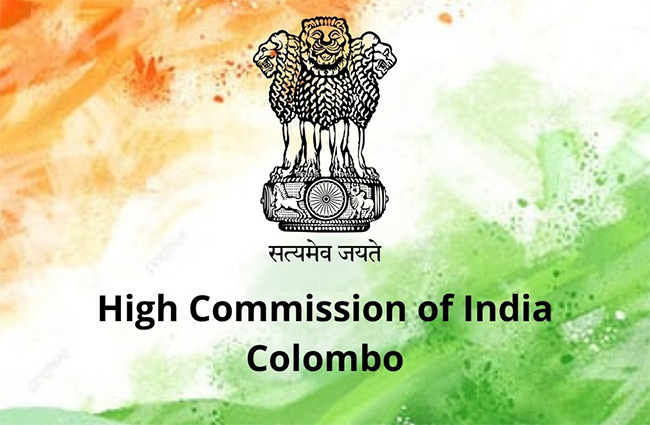
Reference ,the Indian High Commissioner’s recent comments ( The Island, 9th Jan. ) on strong India-Sri Lanka relationship and the assistance granted on recovering from the financial collapse of Sri Lanka and yet again for cyclone recovery., Sri Lankans should express their thanks to India for standing up as a friendly neighbour.
On the Defence Cooperation agreement, the Indian High Commissioner’s assertion was that there was nothing beyond that which had been included in the text. But, dear High Commissioner, we Sri Lankans have burnt our fingers when we signed agreements with the European nations who invaded our country; they took our leaders around the Mulberry bush and made our nation pay a very high price by controlling our destiny for hundreds of years. When the Opposition parties in the Parliament requested the Sri Lankan government to reveal the contents of the Defence agreements signed with India as per the prevalent common practice, the government’s strange response was that India did not want them disclosed.
Even the terms of the one-sided infamous Indo-Sri Lanka agreement, signed in 1987, were disclosed to the public.
Mr. High Commissioner, we are not satisfied with your reply as we are weak, economically, and unable to clearly understand your “India’s Neighbourhood First and Mahasagar policies” . We need the details of the defence agreements signed with our government, early.
RANJITH SOYSA
-

 Business2 days ago
Business2 days agoKoaloo.Fi and Stredge forge strategic partnership to offer businesses sustainable supply chain solutions
-

 Business6 days ago
Business6 days agoDialog and UnionPay International Join Forces to Elevate Sri Lanka’s Digital Payment Landscape
-

 News6 days ago
News6 days agoSajith: Ashoka Chakra replaces Dharmachakra in Buddhism textbook
-

 Editorial14 hours ago
Editorial14 hours agoThe Chakka Clash
-

 Features6 days ago
Features6 days agoThe Paradox of Trump Power: Contested Authoritarian at Home, Uncontested Bully Abroad
-

 Features6 days ago
Features6 days agoSubject:Whatever happened to (my) three million dollars?
-
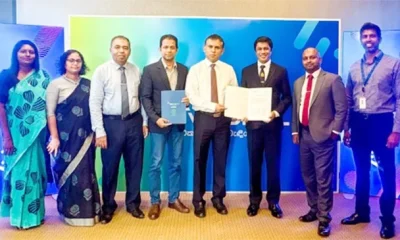
 Business2 days ago
Business2 days agoSLT MOBITEL and Fintelex empower farmers with the launch of Yaya Agro App
-
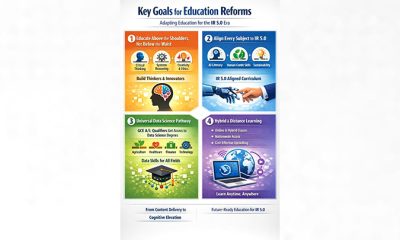
 Features14 hours ago
Features14 hours agoOnline work compatibility of education tablets













